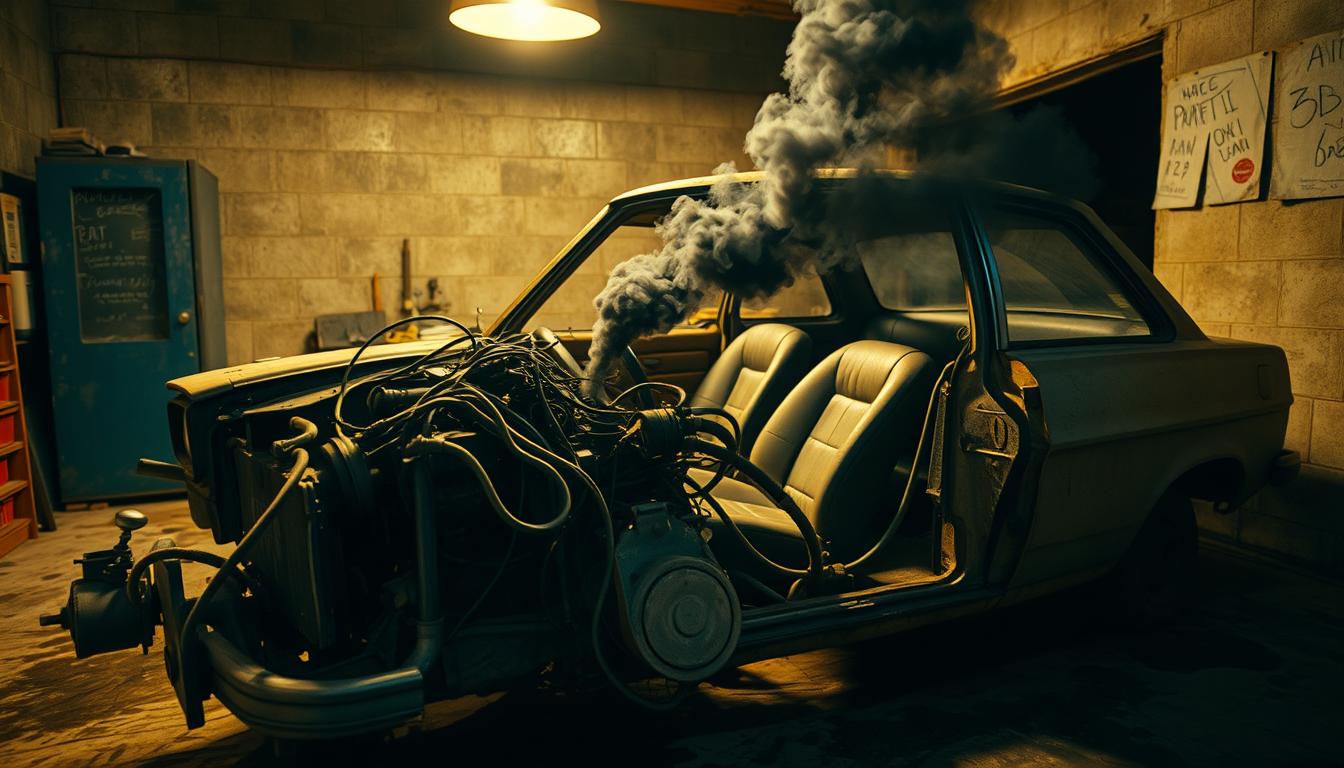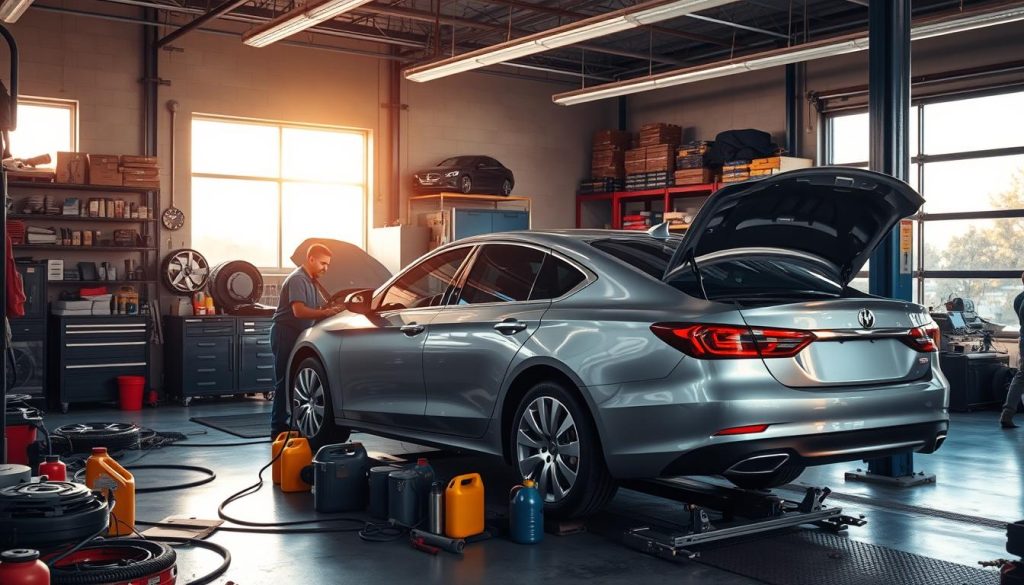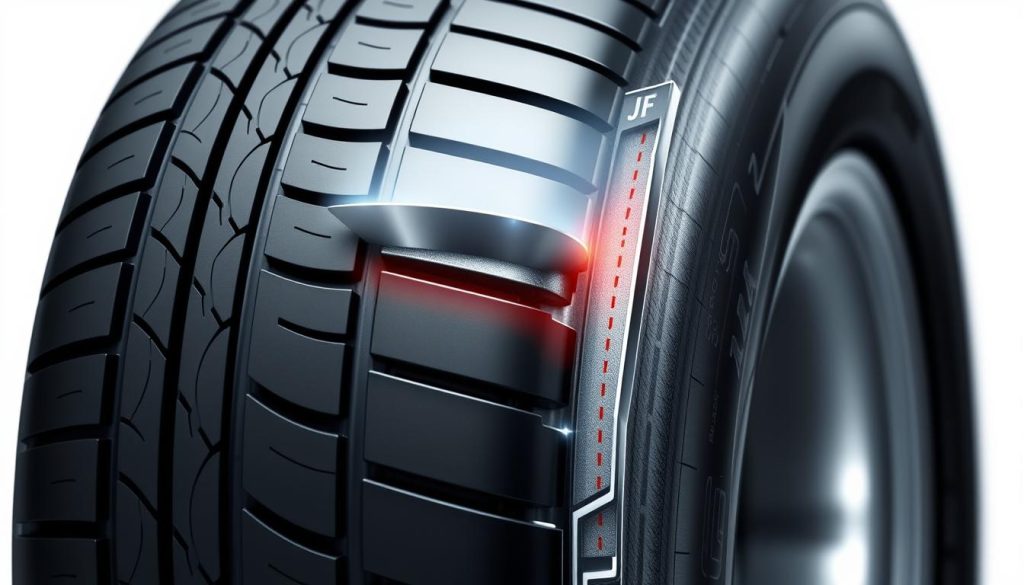Every car owner needs to know about strange car noises. In fact, 25% of car owners hear odd sounds every year. Sadly, 70% of these sounds mean big problems if not fixed soon.
Regular car checks are key to spotting these noises early. This helps avoid big repair costs. At Heaven Automotive, we stress the need for early checks. If you hear something odd, check it right away.
Fixing these sounds keeps your car running well. It also saves you from unexpected costs later.
Key Takeaways
- 25% of car owners hear strange noises at least once a year.
- Ignoring noises can increase repair costs by up to 50%.
- Regular maintenance is key to catching issues early.
- Engine knocking is often a sign of using the wrong fuel grade.
- Brake screeching indicates necessary pad replacements.
- Hissing noises could indicate serious leaks; don’t ignore them.
- Prompt attention to noises can prevent serious repairs in the future.
Understanding Common Car Noises
Strange noises from our cars can worry us. These sounds often mean there’s a problem that needs fixing. Knowing what these vehicle sounds mean can help us keep our cars running well. For example, a squeal might mean our brake pads are worn out. A low rumble could mean our exhaust needs attention.
What Do Different Noises Mean?
Various sounds can mean different things. For instance, squeaking noises might come from the brakes or other parts. Grinding sounds usually mean we need new brake pads. If we ignore this, we might have to replace the rotors, which is more expensive.
Other sounds to watch out for include:
- Knocking or pinging: These sounds often mean we need a tune-up, like new spark plugs or clean air filters.
- Squealing from the serpentine belt: This usually means the belt is worn and can cause other parts to fail.
- Thudding from tires: This sound can mean our tires are not inflated right or our suspension needs fixing.
Importance of Regular Maintenance
Regular maintenance is key to avoiding problems from our car sounds. It keeps our cars running smoothly and lasts longer. We should make sure to:
- Change our oil and check our fluids often to keep our engine in top shape.
- Look at our brake pads and rotors to catch wear before it gets worse.
- Rotate our tires every 5,000 to 7,500 miles to avoid uneven wear.
By understanding car noises and sticking to maintenance, our cars will stay reliable and work well for a long time.
Engine Noises and Their Implications
Engine noises can tell us a lot about our cars. By listening to these sounds, we can spot problems early. This helps us fix things before they get worse.
Knowing what different noises mean is key. For example, knocking sounds and squealing can point to specific issues. This knowledge helps us fix problems quickly and right.
Knocking Sounds: What They Indicate
Knocking sounds mean serious engine problems. They can be caused by bad fuel or other engine issues. This can damage parts like pistons and valves.
Using the wrong fuel can make knocking sounds worse. It can cost a lot to fix, from $1,000 to $5,000. It’s important to catch these sounds early to avoid big repairs.
Squealing from the Engine: Causes and Solutions
Squealing noises usually mean worn belts or parts that aren’t aligned right. Problems with the timing chain can cost a lot to fix, often over $1,000.
Fixing these noises quickly can save money. It can cut repair costs by up to 25%. Regular checks can catch problems before they get worse.
So, if you hear strange noises, take your car to a trusted mechanic. They can check everything and find the problem.
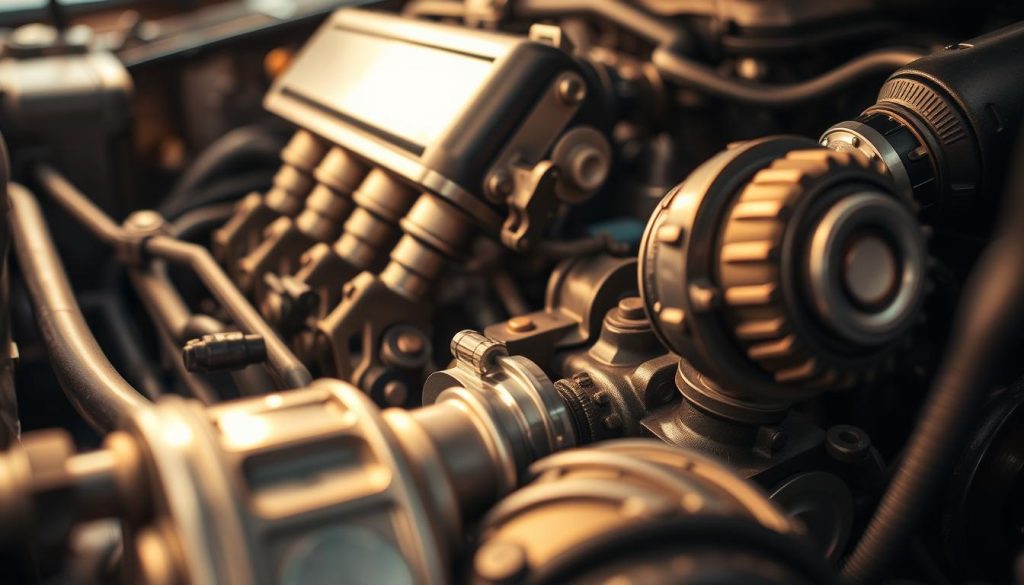
Brake-Related Noises to Watch For
Listening to brake noises is key for vehicle safety. Any sound change means we need to act fast. Issues like grinding or squeaking brakes show our brakes need a check-up.
Doing regular maintenance can stop bigger problems later.
Grinding Brakes: Immediate Actions
Grinding brakes are very scary. They mean the brake pads are gone. We must fix this fast to avoid big damage.
Not fixing grinding noises can be very dangerous. It can cause 80% of brake system damage. Replacing brake pads can save money and make our car run better.
Squeaking Sounds: When to Worry
Squeaky brakes are common. They mean about 60% of brake problems are from worn pads. This sound can come from dust, moisture, or rust on rotors.
Ignoring these sounds can lead to big repairs. Regular checks and replacing brake pads can help. It can make our brakes last 30% longer.
Exhaust Noises: What to Listen For
Listening to exhaust noises can help us find car problems early. Different sounds mean different issues with the exhaust. It’s key to know these sounds to fix them fast.
Loud or Rumbling Sounds: What They Mean
Loud or rumbling sounds often mean a bad muffler or leaks. These problems can make your car run worse and use more fuel. They can also let out harmful gases.
It’s very important for short trip drivers to watch out. Short trips can cause water to build up in the exhaust. This can lead to rust over time.
Hissing Noises: Identifying Leaks
Hissing sounds are a big warning sign. They can mean a crack in the exhaust manifold or a leaky gasket. Finding and fixing these leaks quickly is important.
It stops damage like rust or corrosion in the exhaust. Regular checks can help find cracks or damage. This keeps your car running right.
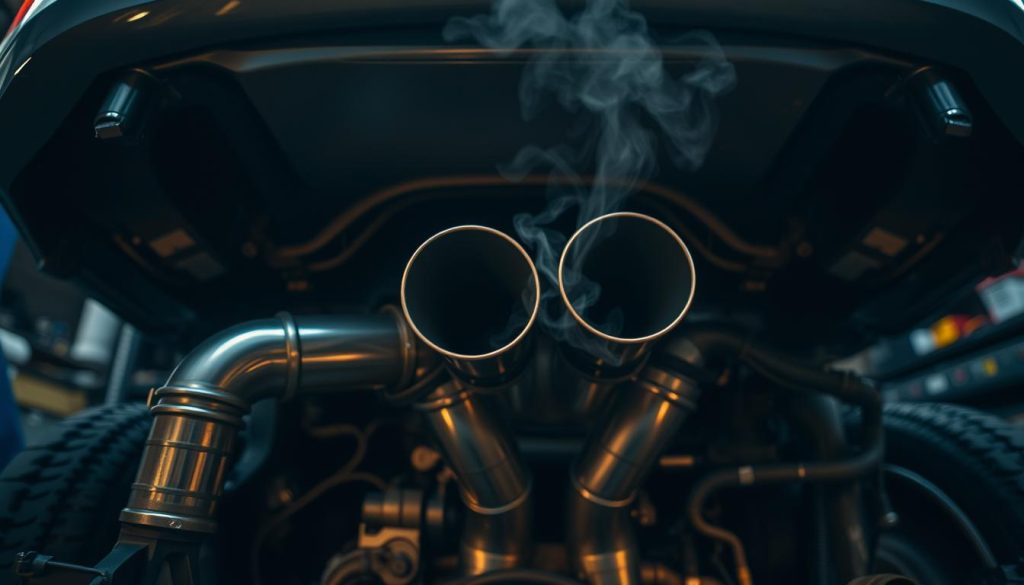
Transmission Noises: Understanding the Signs
Knowing the signs of trouble can save us money. Transmission noises are like early warnings. They tell us when something might be wrong.
Whining Sounds: Possible Transmission Issues
Whining sounds often mean low fluid or worn gears. About 30% of drivers hear this. It’s important not to ignore these sounds.
Checking the fluid regularly and following maintenance tips can help. This way, we can avoid big problems.
Clunking Noises: What They Might Mean
Clunking noises are serious. They could mean loose mounts or worn U-joints. This is true for about 25% of issues.
These sounds can also mean low fluid or damaged gears. Fixing it early can save us a lot of money. Keeping up with maintenance is key.
When to Seek Professional Help
Knowing when to get help for car repairs is key. Signs like strange noises, fluid leaks, or performance drops are big warnings. While we can fix some small problems ourselves, some issues need a pro.
Signs You Can’t Ignore
Grinding brakes, odd engine sounds, or changing temperature gauges mean you need a pro. Fixing these problems fast can stop bigger issues later. Regular checks can also stop many expensive repairs.
DIY Fixes vs. Professional Repairs
Some repairs look easy, but others need a pro. For example, fixing the transmission or electrical problems is best left to experts. Getting help from pros ensures the job is done right and saves money. This way, our cars stay safe and run well for a long time.

